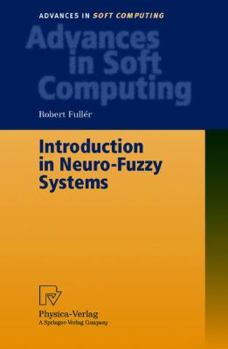Introduction to Neuro-Fuzzy Systems
Fuzzy sets were introduced by Zadeh (1965) as a means of representing and manipulating data that was not precise, but rather fuzzy. Fuzzy logic pro- vides an inference morphology that enables approximate human reasoning capabilities to be applied to knowledge-based systems. The theory of fuzzy logic provides a mathematical strength to capture the uncertainties associ- ated with human cognitive processes, such as thinking and reasoning. The conventional approaches to knowledge representation lack the means for rep- resentating the meaning of fuzzy concepts. As a consequence, the approaches based on first order logic and classical probablity theory do not provide an appropriate conceptual framework for dealing with the representation of com- monsense knowledge, since such knowledge is by its nature both lexically imprecise and noncategorical. The developement of fuzzy logic was motivated in large measure by the need for a conceptual framework which can address the issue of uncertainty and lexical imprecision. Some of the essential characteristics of fuzzy logic relate to the following 242]. - In fuzzy logic, exact reasoning is viewed as a limiting case of ap- proximate reasoning. - In fuzzy logic, everything is a matter of degree. - In fuzzy logic, knowledge is interpreted a collection of elastic or, equivalently, fuzzy constraint on a collection of variables. - Inference is viewed as a process of propagation of elastic con- straints. - Any logical system can be fuzzified. There are two main characteristics of fuzzy systems that give them better performance f r specific applications.
Format:Paperback
Language:English
ISBN:3790812560
ISBN13:9783790812565
Release Date:November 1999
Publisher:Physica-Verlag
Length:289 Pages
Weight:0.96 lbs.
Dimensions:0.7" x 6.1" x 9.2"
Customer Reviews
0 rating





